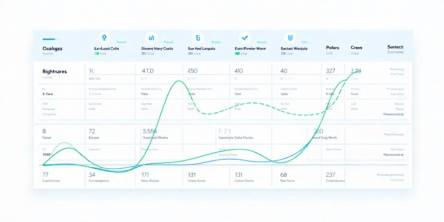Importance of Mobile Apps for Insurance Companies

Mobiles and by extension, mobile apps are the basis for the modern mobile device and take it beyond a mere communication tool. In today’s world, information has to be available at our fingertips and people want mobile applications to do instantly what websites used to do before, give information and details instantly, anytime & anywhere. Mobile apps are now developed for and used in every field and industry.
Some specific reasons for an insurance company to have its insurance app-
- Makes the communication between the company or agent and the client or customer faster, smoother, and more effective.
- It can automatically close tasks that an agent would need to spend time on physically and also allow the customers to use live chat and support for basic queries.
- It can help free up the time for agents to meet with more clients.
- Helps in the collection of data.
The use of mobile apps in the insurance sector helps in increasing efficiency, easy user engagement, increase customer satisfaction, reduction in time spent making premium payments and paperwork, filing claims, etc. It is safe to say that it is no longer possible for any insurance company to function without having a functional mobile app.
Some categories of Insurance mobile apps are-
- Health insurance
- Life insurance
- Vehicle insurance
- Property insurance
- Travel Insurance
Why Insurance Providers Need a Mobile App-
Automation: Insurance apps can automate and simplify many time-consuming manual processes like premium payments, policy renewals, claim processes, etc.
Revenue: Digitization of the insurance sector through mobile apps helps simplify expensive and cumbersome processes and saves insurance companies money by reducing overheads. Agent apps can assist in servicing more customers. The same app can help agents stay in touch with their office without having to run to and from for reporting.
Interaction: Faster responses are the key to customer satisfaction. Insurance apps allow customers to get in touch with an agent or the company almost instantly through a call facility built into the app itself or through chatbots that can resolve general queries immediately.
Competitive advantage: Mobile apps that are paired with good customer service give an advantage over competitors. The apps developed by the insurance companies offer useful features like treatment history, and prescriptions, and also schedule medical appointments on the go.
Notifications and reminders: Insurance mobile apps can be used to remind the insured about premium payments via notifications and text messages. The app can also notify customers regarding updates in the policy and upcoming policy renewals. Claims under process and their progress updates can be notified through apps. In short, any updates regarding the insured policies can be notified within the app and by sending reminders.
Claim processing: The use of mobile apps leads to faster claim processing. This is especially so in the case of cashless claims. In the conventional scenario, a pre-authorization from the insurer was a must for the claimant in case of hospitalization. Using the mobile app of that particular insurance company, the details of the claim can be shared immediately and the insurance company can respond faster. Chances for errors are also eliminated as all details related to the policy are available in a digitized format on the app along with details of the insured person(s). This makes it a convenient, customer-friendly way of dealing with the stress of filing claims and leads to enhance customer experience.
Analytics: Data generated from the mobile app and other electronic means can be used for analytics. Analytics allows insurance companies to process data like transactional information like credit card scores, positive payments, details of banks, and more. Some other data break up for analytics can be:-
- Identity data- It would include name, date of birth, physical address, contact number, email address, social media links, etc.
- Quantitative data- Transactional data like bank details, credit card information, payment frequency, etc.
- Descriptive data- Specifics about the insured property, vehicle(s), health data, profession, etc.
- Qualitative data- Details about subjective and behavioral data like food habits, sports interests, etc.
An app for the insurance company should also have some other features like-
- Admin panel
- Signup or login
- Agent profiles
- Policy list for all clients
- Quotes
- Notifications
- Claim history, with details of claims in process and closed claims
The insurance business is all about dealing with the risks. Transparency is needed to gain the trust of the customers. Mobile applications help insurance companies reach out to policyholders in a simple, effective & transparent manner, easing the way for customer interaction. Choosing the right software company for insurance application development can be beneficial to an insurance company in developing mobile apps to cover the global insurance services that can be offered to customers.
Similar Articles
Food delivery applications, including Uber Eats, DoorDash, Zomato, Swiggy, and Grubhub, generate large volumes of valuable data.
Modern businesses are drowning in communication overload, and much of that burden stems from outdated tools that simply can’t keep up
Building lending software isn’t just a technical project—it’s a business decision. Whether you're a fintech founder or part of a traditional lending institution trying to go digital, three questions will shape everything that follows
Learn why robust security is crucial for super app development. Explore key strategies and best practices for mobile app development security.
Walkie-talkies with an extensive reception capacity have changed significantly when it comes to portable communication by displaying cutting-edge features with seamless connectivity that covers more than just the state
USB-C technology has revolutionized the way we charge our devices, offering faster charging speeds, higher power delivery, and universal compatibility across multiple devices
Discover expert mobile app development strategies to create a viral app that attracts users and boosts engagement
Optimize app localization for iOS users across the EU with language, cultural, and regulatory adaptations. Engage users and boost retention with these tips!
Discover the top 10 mobile app development trends of 2024! Explore 5G, AI, AR/VR, blockchain, and more to stay ahead in the ever-evolving app development landscape.









